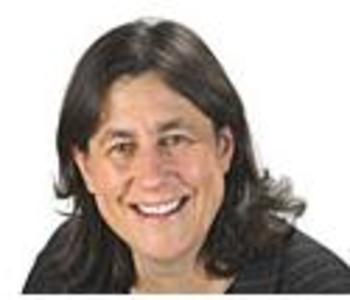QUEBEC CITY - The latest pro-sovereignist volley to come out of France's top political circles is a red herring.
Upon hearing Ségolène Royal, one of the two top contenders in France's upcoming presidential election, offer backing to the cause of Quebec sovereignty this week, one might be tempted to conclude that support for Quebec secession is alive and well and living in Paris.
In fact, the opposite is true. If Royal's wishy-washy comments – which she made on the heels of a 15-minute meeting with visiting Parti Québécois leader André Boisclair and has since watered down – are a symptom of anything, it is of how far the Quebec issue has fallen off France's radar.
By and large, the days when that country's political establishment was on top of Quebec-Canada developments are over. Indeed, Royal's comments put her at odds with the widespread sense within French circles that Quebec has moved on since the last referendum and France along with it. In France, they were widely interpreted as a symptom of relative ignorance on the part of the candidate rather than a serious foreign policy position.
Things had played out very differently in 1995 when Jacques Chirac voiced support for Quebec sovereignty prior to his own election as French president and in the lead-up to the referendum.
In Canada, his comments had then been seen as a shot in the arm of the Parti Québécois; in France, they had come across as an expression of that country's long-standing ties with Quebec.
But this week, Royal had to scramble to put her statement behind her. As it turned out, a morning-after clarification to the effect that Quebec's political future was for Quebecers to decide was not offered quickly enough to avoid being portrayed as a gaffe-prone candidate by Libération, a newspaper usually sympathetic to her socialist party.
Royal was also slammed by many of the readers who responded to the story on the website of Le Monde, another outlet usually sympathetic both to Quebec nationalism and to the French Left.
In the Quebec media, PQ Leader André Boisclair got little credit for resuscitating a dormant relationship. Instead, some described him as seeking elsewhere the momentum that is missing in action at home.
Chirac may have started his presidential tenure as the Quebec sovereignty movement's staunchest international ally but he is ending it as a close friend of former prime minister Jean Chrétien.
In between, the French president's enthusiasm for Quebec sovereignty has visibly waned.
The genocidal wars that have taken place on European soil in the '90s have wrung the last drop of romanticism out of secessionist movements.
In the post-Cold War environment, the concept that many nations can (and should) cohabit under the same state roof has become more compelling than the advent of new French-speaking states.
These days, Quebec's influence within Canada is increasingly more useful to France's self-interest than its existence outside of it could be.
France has embraced the cause of cultural diversity. It is a debate that pits many non-English-speaking countries against the United States and their commercial interest in treating culture as just another industry.
In that battle, the support of Canada – a country that shares the Anglo-Saxon roots of the United States and the same continental space – is ultimately more meaningful than that of a sovereign but less influential Quebec.
Canada's active interest in the cultural diversity battle is driven in no small part by the ongoing Quebec presence in the federation and the linguistic duality that results from it. By the same token, that province was instrumental in tilting the balance against Canada's participation in the war on Iraq in 2003, a decision in line with France's own stance on the issue.
Royal has never set foot in Quebec.
If she wins the presidential election later this year, she will likely travel to Canada for the 400th anniversary of Quebec City next year. By then, a Quebec election will have taken place. If the PQ is in power, it will be interesting to see if she still sings from the same hymnbook as Boisclair.
Meanwhile though, all that leaves Liberal Leader Stéphane Dion in a bit of a potential quandary. Given his dual citizenship, he might one day, if he becomes prime minister, find himself crossing swords on the unity issue with a pro-sovereignty French president that he could legally call his own.
Chantal Hébert's national affairs column appears Monday, Wednesday and Friday. chebert@thestar.ca
No longer on France's radar
Presidential candidate's comments seen as a sign of ignorance rather than serious foreign policy





















Laissez un commentaire Votre adresse courriel ne sera pas publiée.
Veuillez vous connecter afin de laisser un commentaire.
Aucun commentaire trouvé